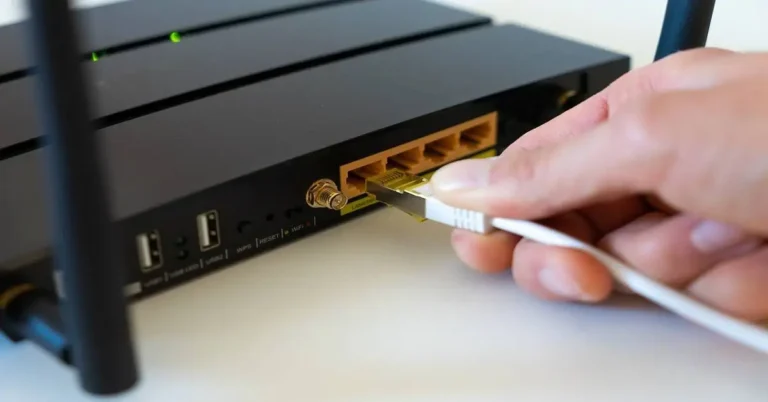Writing good quality code is a work of art. Code quality is a term used to describe the state of your code.
It can be measured in terms of syntax, readability, maintainability, and performance. The more readable your code is, the easier it will be for other developers to understand it.

The world of software development is a big place, and it can be overwhelming to keep up with everything that’s happening. This article is designed to point out some of the most important concepts in software development and how they apply specifically to your code.
Here are a few tips to help improve your code quality:
1. Keep it Simple
To keep your code simple, you need to write readable code that is easy to understand and test. This is especially true when you’re dealing with large or complex systems, as it’s easy for things to get away from you if they’re not properly organized.
The easiest way to keep your code clean and readable is by using a single idea per file instead of multiple ones, which can happen when working on larger projects.
2. Understand the process
The first step towards improving your code quality is knowing what makes your code better than others.
You should definitely take some time to learn about the best practices—and if you’re unsure where to start, there are plenty of resources available such as online boot camps like Bay Valley Tech’s free code Bootcamp, which enables students across the globe to write better code.
But even once you’ve mastered those techniques, there’s still more work left for developers: learning how exactly our tools work together so we can use them effectively! Many people think that writing good software means just following some rules or guidelines, but this isn’t true!
The key thing here isn’t just following rules but rather understanding why those rules exist for them all to add up into something meaningful for both developers themselves and the clients alike.
3. Don’t Repeat Yourself (DRY)
DRY stands for Don’t Repeat Yourself. It’s a software development principle that you should avoid repeating yourself whenever possible.
In other words, DRY means “Don’t write code that already exists elsewhere in your system” or “Don’t write an identical piece of code when one will do.” It can be applied at all levels of abstraction, from the smallest unit (a function) to the highest-level architecture (the application).
The idea is to not have duplicate sections of code within your program or project because this makes it harder to understand for others who work on that project later on.
4. Aim for readability with PEP-8
If you want to ensure that your code is readable and clean, PEP-8 is the way to go. It’s a style guide for Python code, which helps you write more readable and maintainable code. PEP-8 is easy to follow, and it’s free!
5. Use an up-to-date version control system (VCS)
It’s important to use up-to-date version control systems. Version control systems allow you to track the history of your project, making it easier to troubleshoot issues in the future and find out exactly what happened when something went wrong. It makes it easier for others to understand your code and the code history.
6. Write short and descriptive code but do not compromise readability
Short variable names are easier to understand, especially when you have a lot of them in your program. You can use meaningful variable names such as “count” or “counts” instead of just using numbers or letters.
Similarly, short function names are better than long ones because they help users understand what the function does faster when they look at your code after reading it for the first time (e.g., FETCH_COUNT).
Function arguments should also be descriptive so that programmers can quickly guess how many values each argument accepts without looking up documentation on every call site.
7. Use functional programming approaches whenever possible
Functional programming is a programming paradigm that emphasizes functions and variables over the state. Instead of mutating objects in your code, you use functions to modify them.
This makes for easier-to-maintain code since you’re only modifying the data once rather than every time you want to change something about it.
Functional programming has been around for decades and has become more popular recently thanks to its benefits as an alternative to object-oriented approaches like PHP or JavaScript.
In fact, most modern languages have some degree of support for functional features!
8. Don’t comment on bad code; rewrite it
The best way to improve your code quality is by rewriting it. Don’t comment on the bad code. It’s a waste of time and will only make things harder for you if something breaks unexpectedly or causes an error later on.
Instead, use comments to document what each function does so that someone else can understand it better than you could at first glance. Rewrite old functions as templates for new ones and keep them around as references when needed!
9. Always document your functions, modules, classes, and packages as much as possible
To improve the quality of your code, it’s important to document your functions, modules, classes, and packages as much as possible. Documentation is a good practice that allows others to understand your code without reading through every line of code yourself.
It also helps other developers understand what you’re trying to accomplish when writing new modules or functions.
Write comments in your code where appropriate; for example, if an error message is displayed on the screen, then write down comments so that others can see what went wrong before continuing with their work on this project. This will help developers avoid making mistakes in their own projects.
10. Write unit tests to check if your function behaves as expected
Writing unit tests is one of the best ways to ensure that your code doesn’t break. Writing a test denotes that you know how to use the function or method in question and can check if it behaves as expected.
When writing tests, write them the same way as your actual code. This way, when someone else looks at your code and sees multiple sets of commented-out lines (because they are still relevant), they’ll know what each line does without having read through them beforehand!
Conclusion
The code quality of your project is important to the success of your project. Make sure to understand the process, follow coding conventions, and write clear and concise comments. These tips will help you to improve the overall quality of your code.





